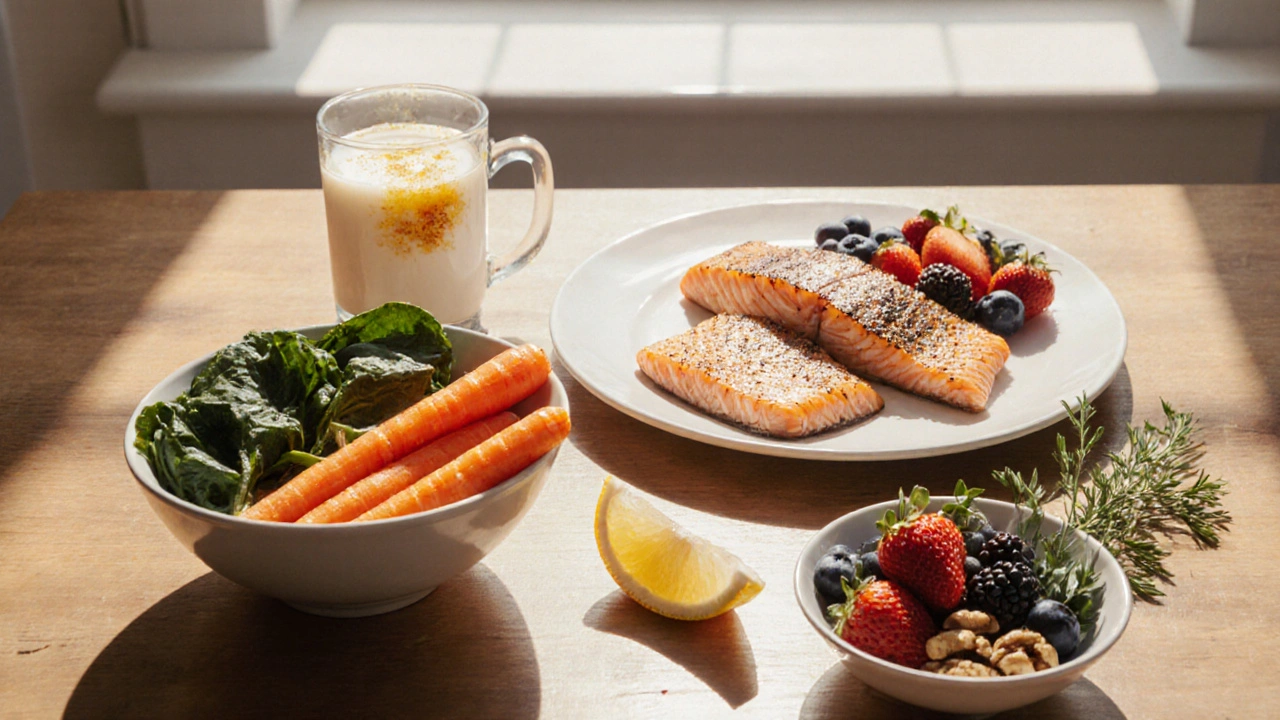Nutrition for Sickle Cell Anemia: What to Eat and Avoid
When you have sickle cell anemia, a genetic blood disorder that causes red blood cells to become rigid and misshapen, leading to pain, fatigue, and organ damage. Also known as sickle cell disease, it doesn’t just affect your blood—it changes what your body needs to stay strong. Good nutrition isn’t just about feeling better. It’s a daily tool to lower the risk of painful crises, fight infections, and keep your energy up. Many people think medicine is the only answer, but what you eat plays a huge role in how your body handles this condition.
Folic acid, a B vitamin critical for making new red blood cells is one of the most important nutrients for people with sickle cell anemia. Your body burns through red blood cells faster than normal, so you need extra folic acid to keep up. Foods like leafy greens, beans, and fortified cereals help—but most doctors recommend a daily supplement too. Then there’s zinc, a mineral that supports immune function and wound healing. People with sickle cell often get infections more easily, and low zinc levels make that worse. Oysters, beef, pumpkin seeds, and lentils are great sources. Don’t forget hydration, the simplest but most overlooked part of managing this disease. Dehydration thickens your blood, making sickle cells more likely to clump and block vessels. Drink water all day, not just when you’re thirsty. Even mild dehydration can trigger a crisis.
Some foods can make things worse. Avoid processed sugars and fried foods—they cause inflammation and drain your energy. Alcohol and caffeine can dehydrate you faster, so limit them. And while iron supplements sound like a good idea, most people with sickle cell already have too much iron in their bodies from frequent blood transfusions. Taking extra iron can damage your liver and heart. Always check with your doctor before starting any supplement.
Meal planning matters more than you think. Eating small, balanced meals throughout the day keeps your blood sugar steady and gives your body constant fuel. Try to include a source of protein, complex carbs, and veggies at every meal. Think grilled chicken with brown rice and steamed broccoli. Or oatmeal with peanut butter and banana. Simple, real food works best.
What you find below is a collection of real, practical guides based on what works for people living with this condition every day. You’ll see how others use diet to cut down on hospital visits, what supplements actually help (and which ones don’t), and how to build meals that support your body without adding stress. No fluff. Just clear, usable advice from people who’ve been there.
How Diet and Nutrition Can Help Manage Sickle Cell Anemia
Learn how specific foods, nutrients, and hydration strategies can help manage sickle cell anemia, reduce crises, and boost overall health.
More
